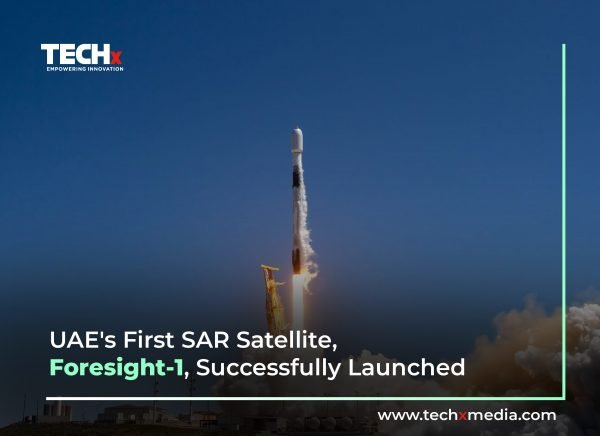27 December 2024, Fri |
3:33 AM

Bayanat, a prominent provider of AI-powered geospatial solutions and a subsidiary of G42, has marked a milestone in the UAE’s space endeavors with the successful launch of the Synthetic Aperture Radar (SAR) satellite, “Foresight-1.” This achievement highlights the UAE’s advancing role in global space exploration and underscores its leadership in Earth observation technologies.
Hasan Al Hosani, Managing Director of Bayanat, shared with Emirates News Agency (WAM) that the launch of Foresight-1 elevates the UAE to the ranks of 20 leading nations equipped with SAR space assets. This development reinforces the country’s position in the space sector and amplifies its capabilities in satellite technology.
Al Hosani elaborated on the strategic collaboration between Bayanat and Al Yah Satellite Communications Company (Yahsat), emphasizing their roadmap to deploy a constellation of SAR-equipped satellites. This initiative follows the announcement of the Earth Observation Space Programme in 2023 and marks the beginning of a comprehensive strategic plan that starts with Foresight-1.
The Foresight-1 satellite is notable for its ability to provide continuous, high-resolution monitoring through SAR technology. Unlike traditional optical imaging satellites, SAR satellites deliver high-quality images regardless of weather conditions, time of day, or sunlight reflection. This advancement will significantly enhance Bayanat and Yahsat’s geospatial solutions, particularly in disaster management, marine monitoring, and smart mobility applications.
Additionally, Emirati citizens represent over 30% of the Earth Observation Space Programme team, highlighting the commitment to nurturing skilled national professionals in this crucial sector.
Looking ahead, Al Hosani anticipates the merger between Bayanat and Yahsat, which is expected to conclude by the end of the year pending regulatory approvals. This merger will establish “Space42,” a leading Emirati company poised to support the UAE’s National Space Strategy 2030. Space42 aims to drive innovation, enhance national security, foster international cooperation, and contribute to economic growth and urban development through advanced space technologies.